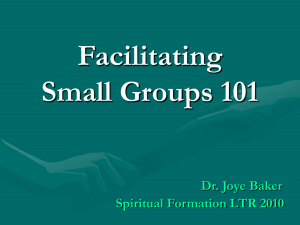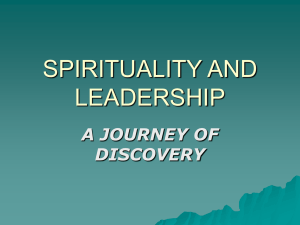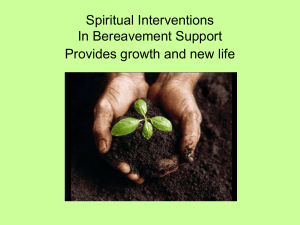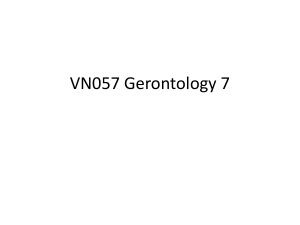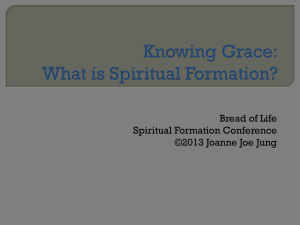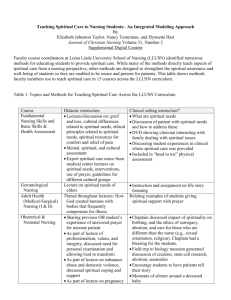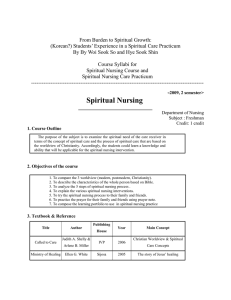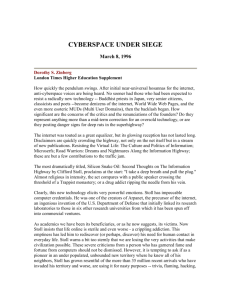Spiritual Care in Nursing
advertisement
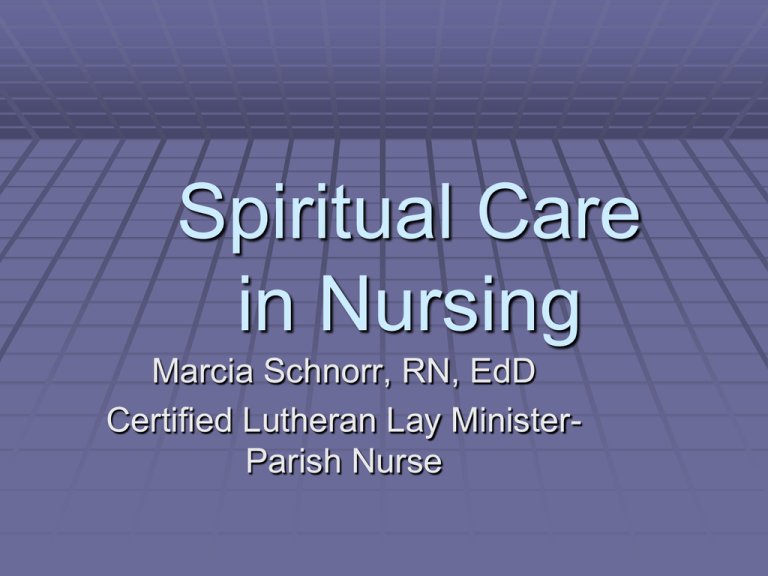
Spiritual Care in Nursing Marcia Schnorr, RN, EdD Certified Lutheran Lay MinisterParish Nurse Sielunhoito Hoitotyossa Spiritual care in nursing Is included in most nursing texts Is often over-looked or discouraged in traditional nursing Is the foundation for parish nursing (diaconal nursing) St. Paul Lutheran Church (Rochelle, IL USA) Spiritual Distress is “the state in which the individual experiences or is at risk for experiencing a disturbance in his belief system that is the source of his strength and hope.” (Carpenito) Defining characteristics Expresses concern with the meaning of life, suffering, and/or death Expresses concern about belief system Expresses anger toward God Expresses concern about his/her relationship with God Questions meaning of own existence Characteristics continued Unable to participate in usual religious practices Seeks spiritual assistance Demonstrates gallows humor Displaces anger toward religious representatives Suffers from sleep disturbances Characteristics continued Alterations in mood or behavior Separated from cultural or religious ties Feels hopeless and helpless Others… Assessments Religious cues (verbal, literature, jewelry, behavior…) Emotional cues Assessment guides Item on “intake history” Other Stoll’s Spiritual Assessment (Concept of Deity) Is religion or God significant to you? If so, can you describe how? Is prayer helpful to you? What happens when you pray? Does a God or deity function in your personal life? If yes, can you describe how? How would you describe your God or what you worship? Stoll’s Spiritual Assessment (Source of Hope and Strength) Who is the most important person to you? To whom do you turn when you need help? Are they available? In what ways do they help? What is your source of strength and hope? What helps you the most when you feel afraid or need special help? Stoll’s Spiritual Assessment (Religious Practices) Do you feel your faith (or religion) is important to you? If yes, would you tell me how? Are there religious practices that are important to you? Has being sick made any difference in your practice of praying? Your religious practices? What religious books or symbols are helpful to you? Stoll’s Spiritual Assessment (Relation Between Spiritual Beliefs and Health) What has bothered you the most about being sick (or in what has happened to you)? What do you think is going to happen to you? Has being sick (or what has happened to you) made any difference in your feelings about God or the practice of your faith? Is there anything that is especially frightening or meaningful to you now? Other useful interview questions What Bible character do you identify with? Why? Do you have a favorite hymn? If so, what is it and why? Is there a Bible verse that is especially meaningful to you? If so, what is it and why? Planning Short-term Long-term individualize CIRCLE Model Implementation C aring I ntuition R espect for religious beliefs & practices C aution L istening E motional Caring Demonstrating care and compassion Possessing an attitude that cares Caring enough to take/use the available time Intuition Making an effort to hear what the person feels Encouraging the person to express feelings Respect for Religious Beliefs and Practices Making appropriate referrals Praying Encouraging devotional activities Providing for specific rites, sacraments, and observations Offering religious conversation Caution Declining to proselytize Avoiding judgments Giving choices Listening Making an effort to hear what the person feels Encouraging the person to express feelings Emotional Support Working through feelings Showing love Touching Evaluation Relational Physical Emotional Intellectual Religious/Spiritual Case studies Jeff and Vicki Les and Deb Laura Others Jumalalle olkoon kunnia! To God be the glory!
